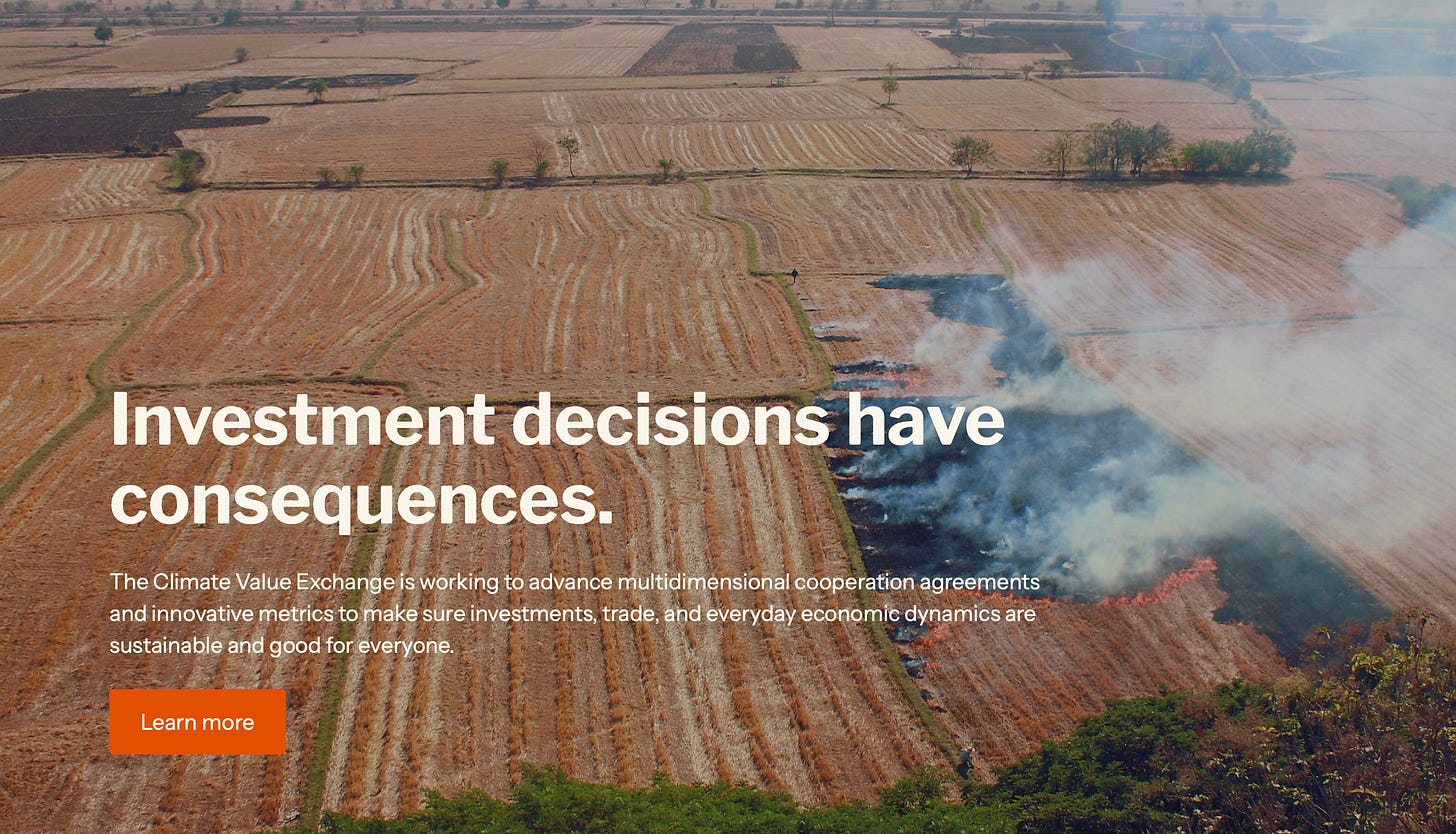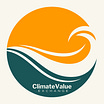Forum to focus on local actions to secure climate-resilient prosperity
Climate Value is a vital metric for future prosperity; key opportunities are being missed, due to under-investment; insight-sharing can make trade, finance & local economies into engines of progress.
Climate Value Exchange partners have been gathering insights on Activating the Climate Value Economy. A small-group planning meeting was convened by Geoversiv, with participation from Climate Civics and input from other partners. Further input was gathered from published materials, related events, and correspondence on the strategic direction of the Climate Value Exchange project.

The core focus of the meeting was the question:
What is needed to make Climate Value a mainstream economic imperative that is actionable and achievable in local experience?
Before the meeting, several ideas were floated as possible top-line answers to this question:
Awareness – recognized as a broad category of activities and outcomes, including ways in which awareness translates into local and national decision-making
Access to scientific data
Services that translate scientific data
Increased financing and other incentives, backed by government policy and budget planning
Sufficient industrial system replacement (clean energy replacing dirty energy, for instance) to reach a tipping point
De-risking measures, to unlock financing and reduce transition risk
Access to improved technology and services, through climate-aligned trade
Naturally, the discussion had to address the ongoing global trade crisis, set in motion by the decision of the new U.S. president to impose extraordinary tariffs to address what he says in a trade deficit emergency. Insights on this question included:
It is not trade that creates intractable inequities, but the way in which countries manage the interaction of large corporations with the everyday economy.
Instead of retaliatory tariffs, it would be useful to see trading partners agree to cooperation incentives that reward innovations in technology and business practice that reduce climate risk and build resilience.
Defining resilience is important: Resilience against trade shocks requires stronger trading relationships, not weaker ones; resilience against climate shocks requires advance planning, significant resources devoted to managing contingencies, and economy-wide incentives that let small-scale actors adapt and innovate.
There is interest in seeing more practical application of tools referenced in the Localizing Financial Innovation brief.
Across diverse areas of the risk/resilience/innovation challenge, it is interesting to explore the role of cities and regions.
For the larger virtual Forum on Activating the Climate Value Economy, there is interest in focusing on specific innovative actions that can bring about high-ambition multidimensional multilateral climate cooperation, in line with Article 6.8 of the Paris Agreement. That means climate cooperation that serves mutliple goals and priorities at once.
Three references were offered to help get to finer-grain detail about practical measures:
The March 19 Blue Note, Trade is Leverage for Climate Rescue and Resilience-building, reporting on the Climate-Smart Trade and Finance Forum;
The long list of “non-market approaches” assembled for the SB56 round of UN Climate Change negotiations, with additional resources;
The Climate Value Exchange brief on Non-market approaches as critical drivers of climate ambition, supported by CCI as a contribution to the SB58 negotiations.
Four additional pieces from the Good Food Finance Network were also brought forward as potential guidance for practical applications:
Innovative Collaborative Funding Model de-risks investments in good food transformation
Nature Metrics: measuring progress and catalyzing investment in sustainable food systems
We heard reiterated the need for action at multiple levels and across diverse sectors, at the same time:
National climate laws designed to reduce climate risk and establish industries suited to a climate-resilient future;
Food systems that are sustainable, conducive to better human health and longevity, and affordable for all;
Reduced climate-related displacement and reduced conflict risk;
Measures that recognize and support the rights of nature, including watersheds, ecosystems, and ocean health;
Improved catalytic investment from private and multilateral financial institutions, for example through co-investment approaches.
We heard calls for urgent policy action and private-sector innovation to support:
Climate-sensitive insurance for large- and small-scale actors;
Science-informed trade and investment incentives;
Cooperative approaches, both between national governments and between levels of government, focusing on overlapping and value-building co-benefits;
Urgent prioritization of regenerative, resilience-building food systems practices that can be rewarded with new green finance instruments;
Insight-sharing to ensure best practices spread more quickly;
Incubation efforts to support small-scale local startups that can deliver intermediary services related to measuring and building Climate Value as a routine part of everyday business.
The following thematic description was proposed for the wider Activating the Climate Value Exchange virtual conference:
Climate Value is a critical missing ingredient in decisions across the economy, and at all levels of income. Essential future-building opportunities are being missed, because mainstream financial decision-making, trade policy, and industrial activity, are not aligned with reducing the risk of major shocks and building Climate Value. Financial regulators, corporate leaders, and major insurers have repeatedly warned that, not only is science flashing clear warning signs, but unchecked climate disruption will make the mainstream economy non-viable. The collapse of core functions supporting everyday life could become a persistent problem in most societies by the end of this century, or by mid-century, for much of the world. The Climate Value economy is a necessary future condition, if we are to enjoy the safety, security, opportunity, and prosperity we have come to expect. Policy-makers and business leaders need to develop the practical tools for activating the Climate Value economy.
The virtual Forum on Activating the Climate Value Economy will be held in September ahead of the United Nations General Assembly and New York Climate Week.
For more information about the Climate Value Exchange, and the work of measuring and expanding Climate Value, go to ClimateValue.net
Major food security safeguard at risk
Few things could be more important to the security of any nation that food. Without sufficient food supplies, entire populations are disrupted, dislocated, and potentially decimated. Since the COVID-19 pandemic took over the world in March 2020, hunger has exploded to historic levels. At one point, the number of people facing prolonged hunger conditions…











